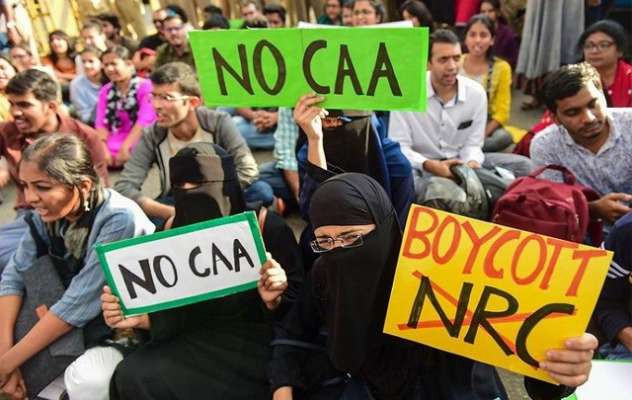UN Human Rights Council experts urge India to release anti-CAA protestors

TCN News
Special Rapporteurs of the United Nations Human Rights Council in the latest session have urged India to immediately release activists who have been arrested for anti-CAA protests.
The Principal Rapporteurs - Mary Lawlor and Leigh Toomey chaired the session of the Special Procedures of the Human Rights Council, which is composed of independent human rights defenders and global experts. The session discussed India’s citizenship laws that provoked nationwide protests, pointing that it is the blatant exclusion of Muslims from access to citizenship.
Speaking about the Act, the experts said that it is met by criticism from not just Muslims but also Hindus, on the grounds that it “violates the secular foundations of India’s constitution.”
The Council mentioned the student activist Safoora Zargar who was detained for two months despite her pregnancy, reminding that it was against humanitarian grounds under the international standards of laws. It said that these protestors, mostly student activists, “appear to have been arrested simply because they exercised their right to denounce and protest against the CAA.”
“Authorities should immediately release all human rights defenders who are currently being held in pre-trial detention without sufficient evidence, often simply on the basis of speeches they made criticizing the discriminatory nature of the CAA,” the UN Human Rights meeting stated. The session iterated that although demonstrations ended in March due to the COVID-19 pandemic and India’s Supreme Court had also issued an order to decongest jails due to infection spread concerns, the authorities still continued to detain protestors.
It further detailed that all of the 11 individual cases against rights activists include serious allegations of failures of legal procedure, custodial torture and ill-treatment. UN experts then echoed their support for Meeran Haider, Gulfisha Fatima, Safoora Zargar, Asif Iqbal Tanha, Devangana Kalita, Natasha Narwal, Khalid Saifi, Shifa Ur Rehman, Dr Kafeel Khan, Sharjeel Imam and Akhil Gogoi, all of who are detained arbitrarily or under false charges. It resonated that the one thing common among the 11 cases is that they questioned the discrepancy within the system thus exposing loopholes in the government’s management of institutions. In this regard, the Council expressed that such arrests are “clearly designed to send a chilling message to India’s vibrant civil society that criticism of government policies will not be tolerated.”
The Special Procedures Council further highlighted that the authorities’ response to anti-CAA protestors has been “discriminatory” as they have “not investigated allegations of incitement to hatred and violence by CAA supporters,” who were seen on rallies and public speeches through ample video and audio reach to have chanted “shoot the traitors” slogans.
Flagging that the Indian authorities “were invoking counter-terrorism or national security legislation, and using procedural police powers, to deny bail to protesters and issue charges carrying heavy sentences,” it concluded that the UN Human Rights Special Procedures Committee is currently in contact with the Government on this matter.
